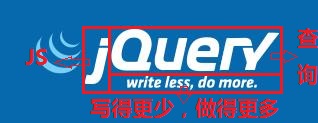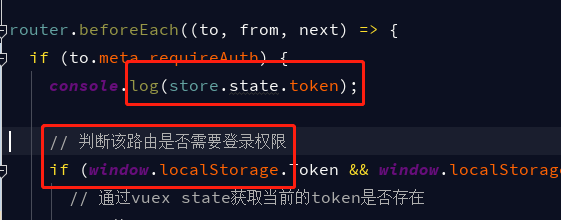可以将文章内容翻译成中文,广告屏蔽插件可能会导致该功能失效(如失效,请关闭广告屏蔽插件后再试):
问题:
I am working with ASP.NET MVC 5 Web Api. I want consult all my users.
I wrote api/users and I receive this:
"The 'ObjectContent`1' type failed to serialize the response body for content type 'application/json; charset=utf-8'"
In WebApiConfig, already I added these lines:
HttpConfiguration config = new HttpConfiguration();
config.Formatters.XmlFormatter.SupportedMediaTypes.Remove(appXmlType);
config.Formatters.JsonFormatter.SerializerSettings.ReferenceLoopHandling = Newtonsoft.Json.ReferenceLoopHandling.Ignore;
But it still doesn't work.
My function for return data is this:
public IEnumerable<User> GetAll()
{
using (Database db = new Database())
{
return db.Users.ToList();
}
}
回答1:
When it comes to returning data back to the consumer from Web Api (or any other web service for that matter), I highly recommend not passing back entities that come from a database. It is much more reliable and maintainable to use Models in which you have control of what the data looks like and not the database. That way you don't have to mess around with the formatters so much in the WebApiConfig. You can just create a UserModel that has child Models as properties and get rid of the reference loops in the return objects. That makes the serializer much happier.
Also, it isn't necessary to remove formatters or supported media types typically if you are just specifying the "Accepts" header in the request. Playing around with that stuff can sometimes make things more confusing.
Example:
public class UserModel {
public string Name {get;set;}
public string Age {get;set;}
// Other properties here that do not reference another UserModel class.
}
回答2:
If you are working with EF, besides adding the code below on Global.asax
GlobalConfiguration.Configuration.Formatters.JsonFormatter.SerializerSettings
.ReferenceLoopHandling = Newtonsoft.Json.ReferenceLoopHandling.Ignore;
GlobalConfiguration.Configuration.Formatters
.Remove(GlobalConfiguration.Configuration.Formatters.XmlFormatter);
Dont`t forget to import
using System.Data.Entity;
Then you can return your own EF Models
Simple as that!
回答3:
Given right answer is one way to go, however it is an overkill when you can fix it by one config settings.
Better to use it in the dbcontext constructor
public DbContext() // dbcontext constructor
: base("name=ConnectionStringNameFromWebConfig")
{
this.Configuration.LazyLoadingEnabled = false;
this.Configuration.ProxyCreationEnabled = false;
}
Asp.Net Web API Error: The 'ObjectContent`1' type failed to serialize the response body for content type 'application/xml; charset=utf-8'
回答4:
Add this code to global.asax below on Application_Start:
Update from .Ignore to .Serialize . It must work.
GlobalConfiguration.Configuration.Formatters.JsonFormatter.SerializerSettings.ReferenceLoopHandling = Newtonsoft.Json.ReferenceLoopHandling.Serialize;
GlobalConfiguration.Configuration.Formatters.Remove(GlobalConfiguration.Configuration.Formatters.XmlFormatter);
回答5:
public class UserController : ApiController
{
Database db = new Database();
// construction
public UserController()
{
// Add the following code
// problem will be solved
db.Configuration.ProxyCreationEnabled = false;
}
public IEnumerable<User> GetAll()
{
return db.Users.ToList();
}
}
回答6:
I don't like this code:
foreach(var user in db.Users)
As an alternative, one might do something like this, which worked for me:
var listOfUsers = db.Users.Select(r => new UserModel
{
userModel.FirstName = r.FirstName;
userModel.LastName = r.LastName;
});
return listOfUsers.ToList();
However, I ended up using Lucas Roselli's solution.
Update: Simplified by returning an anonymous object:
var listOfUsers = db.Users.Select(r => new
{
FirstName = r.FirstName;
LastName = r.LastName;
});
return listOfUsers.ToList();
回答7:
There's also this scenario that generate same error:
In case of the return being a List<dynamic> to web api method
Example:
public HttpResponseMessage Get()
{
var item = new List<dynamic> { new TestClass { Name = "Ale", Age = 30 } };
return Request.CreateResponse(HttpStatusCode.OK, item);
}
public class TestClass
{
public string Name { get; set; }
public int Age { get; set; }
}
So, for this scenario use the [KnownTypeAttribute] in the return class (all of them) like this:
[KnownTypeAttribute(typeof(TestClass))]
public class TestClass
{
public string Name { get; set; }
public int Age { get; set; }
}
This works for me!
回答8:
I resolved it using this code to WebApiConfig.cs file
var json = config.Formatters.JsonFormatter;
json.SerializerSettings.PreserveReferencesHandling = Newtonsoft.Json.PreserveReferencesHandling.Objects;
config.Formatters.Remove(config.Formatters.XmlFormatter);
回答9:
My personal favorite: Just add the code below to App_Start/WebApiConfig.cs. This will return json instead of XML by default and also prevent the error you had. No need to edit Global.asax to remove XmlFormatter etc.
The 'ObjectContent`1' type failed to serialize the response body for content type 'application/xml; charset=utf-8
config.Formatters.JsonFormatter.SupportedMediaTypes.Add(new MediaTypeHeaderValue("text/html"));
回答10:
Use AutoMapper...
public IEnumerable<User> GetAll()
{
using (Database db = new Database())
{
var users = AutoMapper.Mapper.DynamicMap<List<User>>(db.Users);
return users;
}
}
回答11:
Use the following namespace:
using System.Web.OData;
Instead of :
using System.Web.Http.OData;
It worked for me
回答12:
Solution that worked for me:
Use [DataContract] for class and [DataMember] attributes for each property to serialize.This is enough to get Json result (for ex. from fiddler).
To get xml serialization write in Global.asax this code:
var xml = GlobalConfiguration.Configuration.Formatters.XmlFormatter;
xml.UseXmlSerializer = true;
- Read this article, it helped me to understand serialization:
https://www.asp.net/web-api/overview/formats-and-model-binding/json-and-xml-serialization
回答13:
To add to jensendp's answer:
I would pass the entity to a user created model and use the values from that entity to set the values in your newly created model. For example:
public class UserInformation {
public string Name { get; set; }
public int Age { get; set; }
public UserInformation(UserEntity user) {
this.Name = user.name;
this.Age = user.age;
}
}
Then change your return type to: IEnumerable<UserInformation>
回答14:
If you are working with EntityFramework, you should disable proxy in your DbContext class constructor as,
public class MyDbContext : DbContext
{
public MyDbContext()
{
this.Configuration.ProxyCreationEnabled = false;
}
}
回答15:
Another case where I received this error was when my database query returned a null value but my user/view model type was set as non-nullable. For example, changing my UserModel field from int to int? resolved.
回答16:
This also happens when the Response-Type is not public!
I returned an internal class as I used Visual Studio to generate me the type.
internal class --> public class
回答17:
While all these answers above are correct, one may want to check the InnerException > ExceptionMessage.
If it says something like this "The ObjectContext instance has been disposed and can no longer be used for operations that require a connection.". This could be an issue because of default behavior of the EF.
By assigning LazyLoadingEnabled = false in your DbContext constructor will do the trick.
public class MyDbContext : DbContext
{
public MyDbContext()
{
this.Configuration.LazyLoadingEnabled = false;
}
}
For more detailed reading about EagerLoading and LazyLoading behavior of EF refer this MSDN Article.
回答18:
In my case I have had similar error message:
The 'ObjectContent`1' type failed to serialize the response body for
content type 'application/xml; charset=utf-8'.
But when I dig deeper in it, the issue was:
Type 'name.SomeSubRootType'
with data contract name
'SomeSubRootType://schemas.datacontract.org/2004/07/WhatEverService'
is not expected. Consider using a DataContractResolver if you are
using DataContractSerializer or add any types not known statically to
the list of known types - for example, by using the KnownTypeAttribute
attribute or by adding them to the list of known types passed to the
serializer.
The way I solved by adding KnownType.
[KnownType(typeof(SomeSubRootType))]
public partial class SomeRootStructureType
This was solved inspired from this answer.
Reference: https://msdn.microsoft.com/en-us/library/ms730167(v=vs.100).aspx


